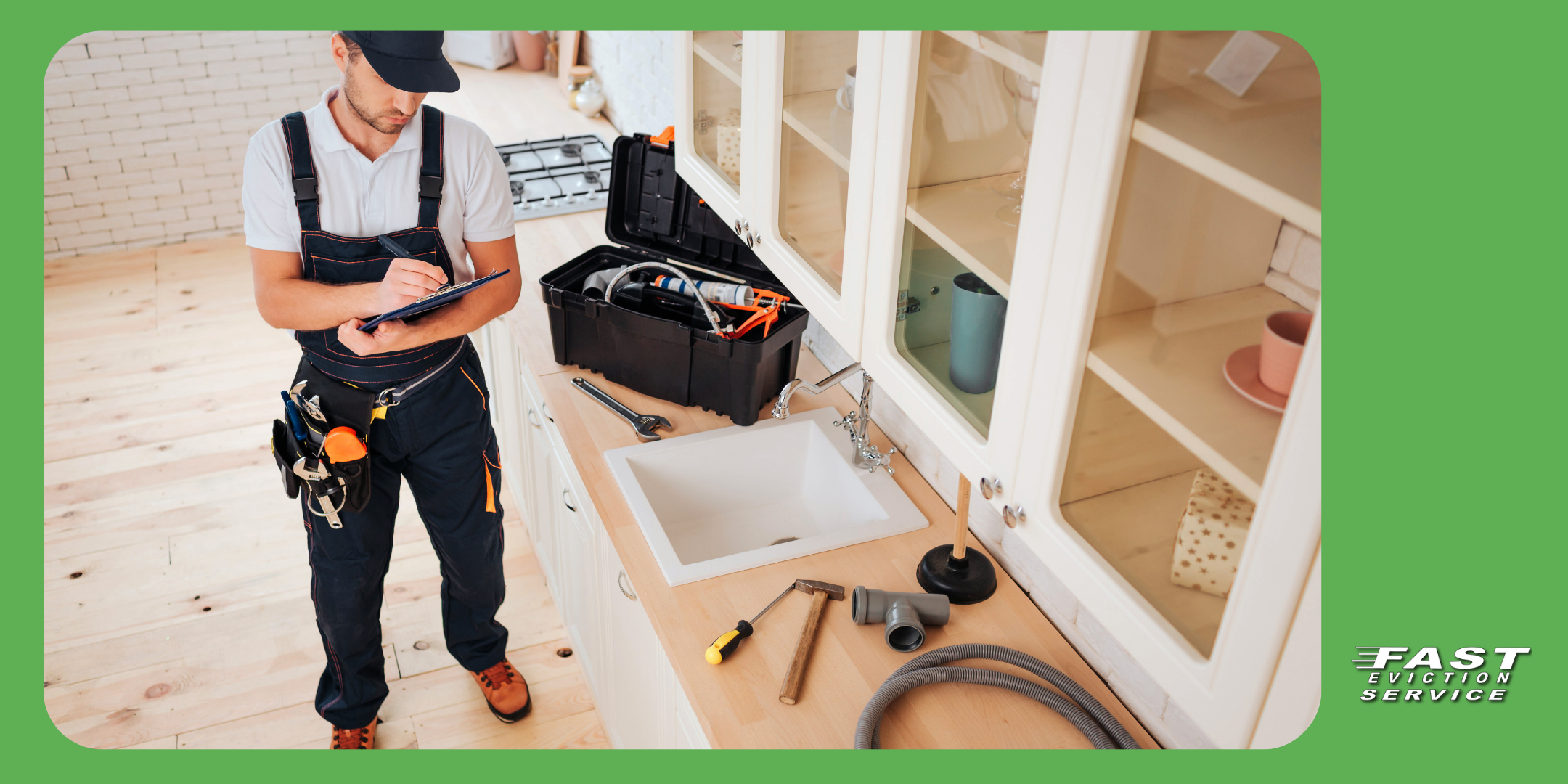Updated 11/19/24
Managing an out-of-state rental property can seem daunting at first. It requires landlords to balance the responsibilities of maintaining their property while overcoming the challenges of distance. With careful planning and the right strategies, however, it’s entirely possible to successfully manage your property and protect your investment. Whether it’s understanding how to handle security deposits, ensuring routine maintenance, or building a reliable local support network, landlords can thrive even when managing from afar.
In this article, we’ll explore the key considerations for managing an out-of-state rental property, including tips for staying organized and how to handle specific situations, like ensuring timely security deposit refunds in California.

Table of Contents
- The Challenges of Managing Property Out of State
- Building a Local Support System
- Security Deposit Refunds for California Properties
- Staying Compliant with Local Laws
- Leveraging Technology for Long-Distance Management
- Frequently Asked Questions
The Challenges of Managing Property Out of State
One of the first steps to effectively managing an out-of-state rental property is understanding the potential hurdles. Distance makes it harder to oversee day-to-day operations, respond to emergencies, or ensure your property remains in good condition.
Tenant relations can also be trickier when you’re not physically present. Building trust and maintaining open communication becomes even more crucial. Additionally, staying on top of local laws and regulations—especially those related to tenant rights and security deposit handling—is vital to avoid legal issues.
To address these challenges, landlords must adopt a proactive approach. This means setting up processes for regular communication, planning ahead for maintenance, and having contingency plans in place for emergencies.
Building a Local Support System
Having a strong local support system is one of the most important aspects of managing property out of state. Hiring a property manager is often the easiest way to ensure your property is in capable hands. A good property manager can handle tenant screening, rent collection, maintenance, and even security deposit refunds.
If hiring a property manager isn’t an option, consider creating a network of trusted professionals. This can include local handymen, contractors, real estate agents, and even friendly neighbors who can keep an eye on the property. Maintaining a network ensures you have reliable resources to address issues promptly.
Clear communication with your support team is key. Providing detailed instructions for handling situations like tenant disputes, inspections, or security deposit deductions can prevent misunderstandings and delays.
Security Deposit Refunds for California Properties
If your out-of-state rental property is located in California, understanding the state’s security deposit laws is crucial. California has strict rules governing how landlords must handle security deposits, even if they’re managing from a distance.
California law requires landlords to return the tenant’s security deposit within 21 days of move-out. If any deductions are made, landlords must provide an itemized statement, including receipts for repairs or cleaning costs exceeding $125. Ensuring this process is handled accurately and on time is especially important for out-of-state landlords who may need to coordinate with local vendors.
To simplify the process, consider setting up a system in advance. For example, create a checklist for move-out inspections, document property conditions thoroughly with photos, and communicate clearly with your tenants about expectations for cleaning and repairs. By planning ahead, you can avoid delays and potential disputes over the deposit.
Staying Compliant with Local Laws
When managing property from out of state, staying compliant with local and state laws is non-negotiable. Laws vary widely from one jurisdiction to another, covering everything from tenant rights to rent control policies and safety requirements.
In California, for instance, landlords must provide tenants with proper notice before entering the property (24 hours for non-emergencies) and comply with habitability standards, which include providing working plumbing, heating, and smoke detectors. Ignoring these requirements can lead to legal penalties and strained tenant relationships.
Regularly reviewing laws in your rental property’s location is a good habit. Partnering with a property manager or legal professional familiar with local regulations can also help ensure compliance.
Leveraging Technology for Long-Distance Management
Technology is a game-changer for landlords managing from afar. Online tools and platforms can help streamline nearly every aspect of property management, from tenant screening to rent collection.
Property management software allows you to automate tasks like rent payments, lease renewals, and maintenance requests. Video conferencing tools enable virtual inspections or check-ins with tenants, while smart home devices can help you monitor security and utilities remotely.
For security deposit refunds, digital payment platforms can ensure tenants receive their funds promptly, reducing delays caused by mailing checks. Many tools also allow for clear documentation, which is essential for protecting yourself in case of disputes.
By leveraging technology, landlords can maintain a hands-on approach even when managing from a distance.
Frequently Asked Questions
1. What are the biggest challenges of managing property out of state?
The main challenges include responding to emergencies promptly, maintaining tenant relationships, and staying compliant with local laws. Establishing a reliable local support system and using technology can help address these challenges effectively.
2. How can I handle security deposit refunds for an out-of-state property in California?
To comply with California law, document the property’s condition at move-out, itemize any deductions, and return the deposit within 21 days. Coordinate with local vendors for cleaning or repairs to meet the deadline.
3. Is it worth hiring a property manager for an out-of-state rental property?
Hiring a property manager can save time and stress by handling tenant interactions, maintenance, and legal compliance. While it involves additional costs, it’s often worth it for landlords who cannot manage the property personally.
Final Thoughts
Managing an out-of-state rental property requires organization, foresight, and the right tools. By addressing the challenges of long-distance management, building a dependable local support network, and staying informed about local laws, landlords can effectively oversee their investments from afar.
Whether you’re navigating security deposit refunds in California, working to manage a long-distance rental property, or handling day-to-day tenant relations, a proactive approach is key. With careful planning and modern technology, you can ensure your property remains a profitable and well-maintained asset.




